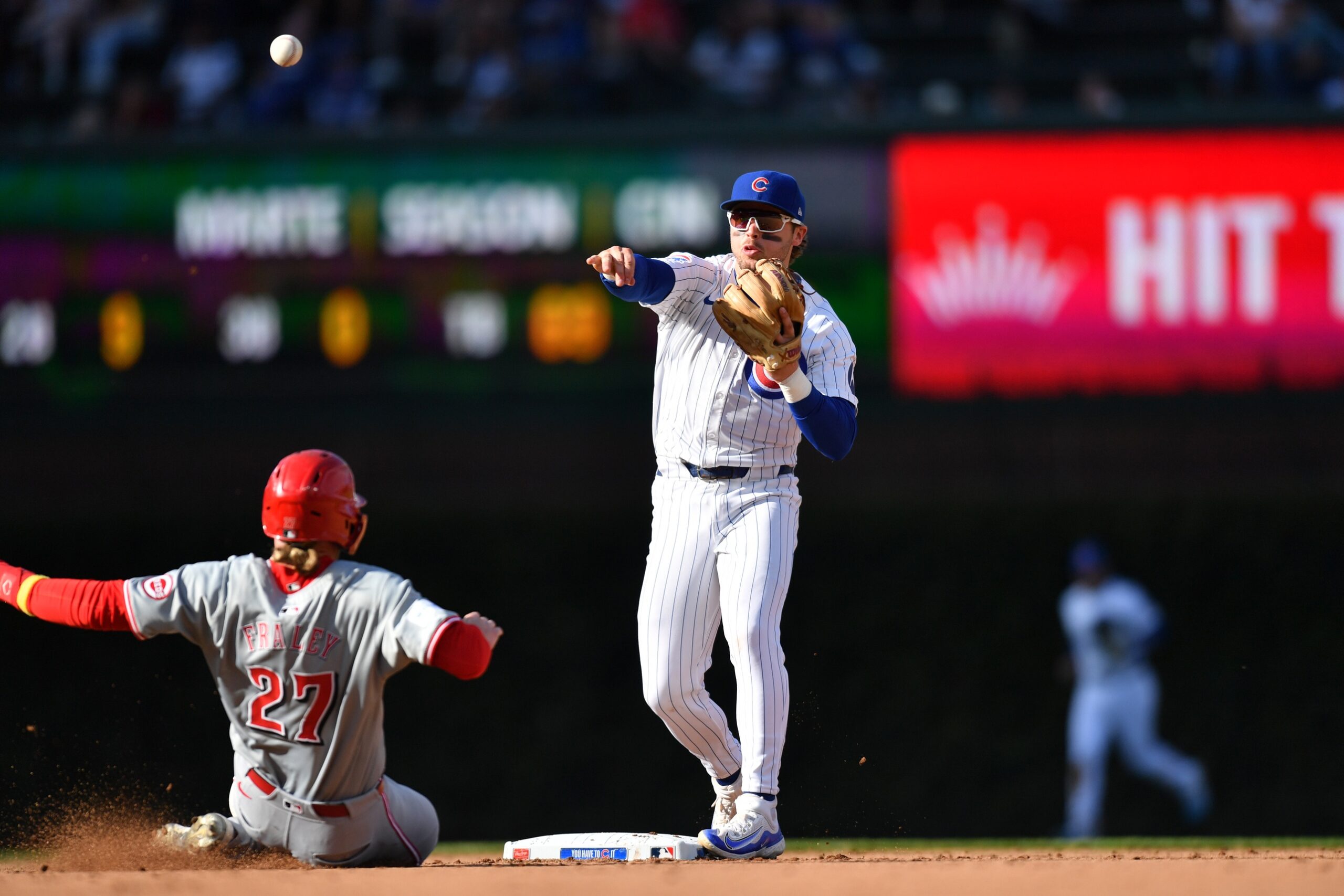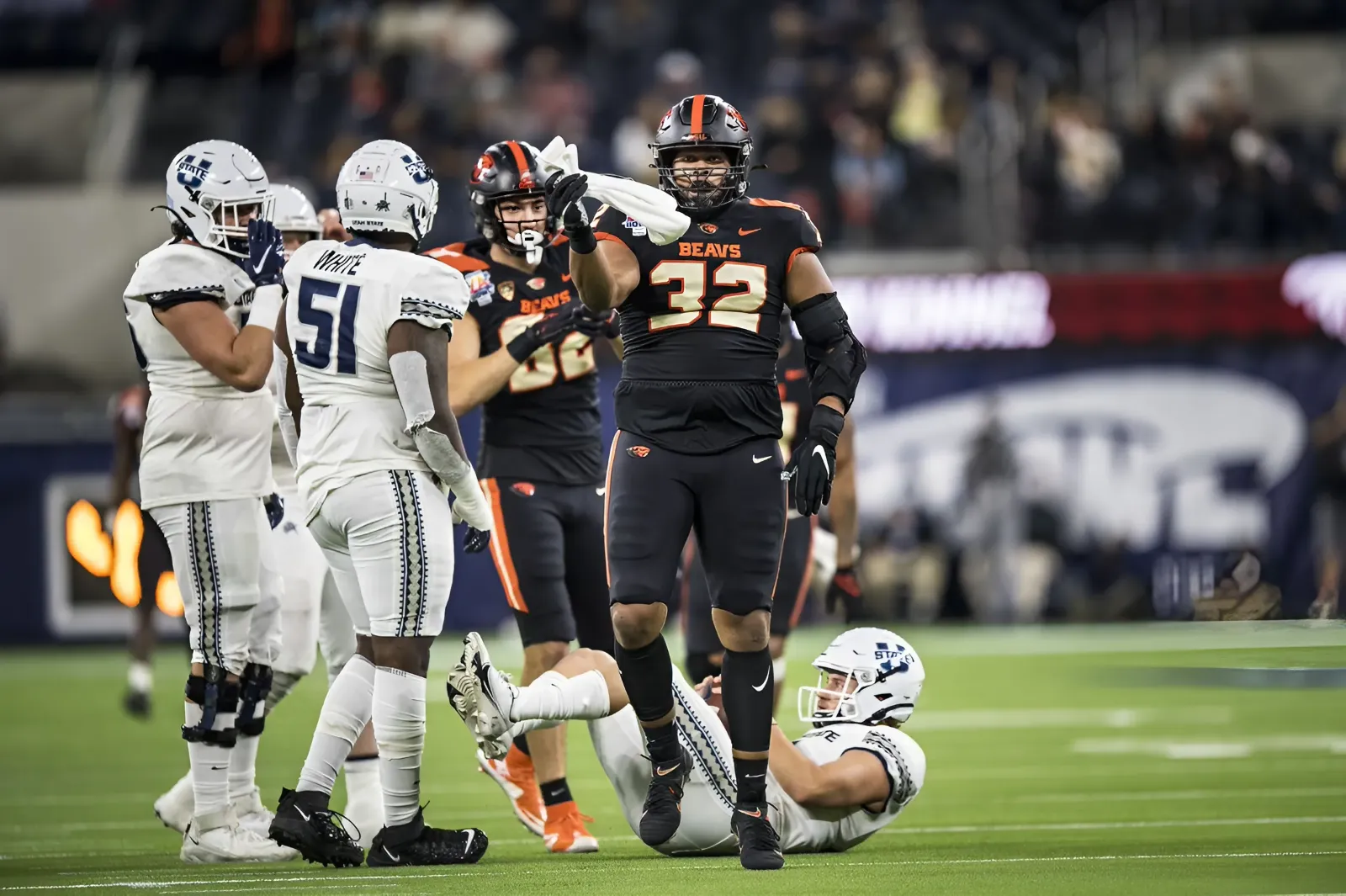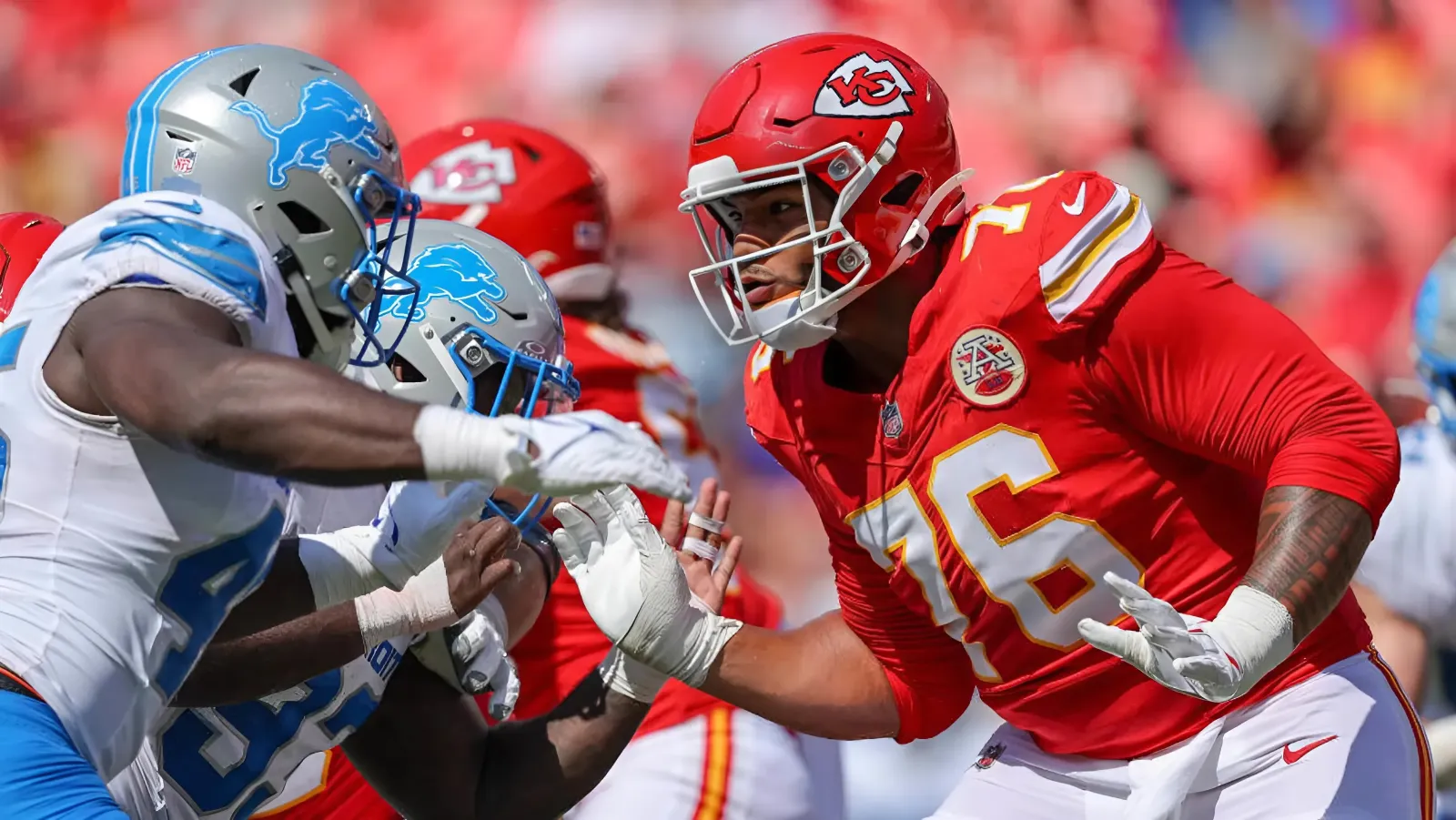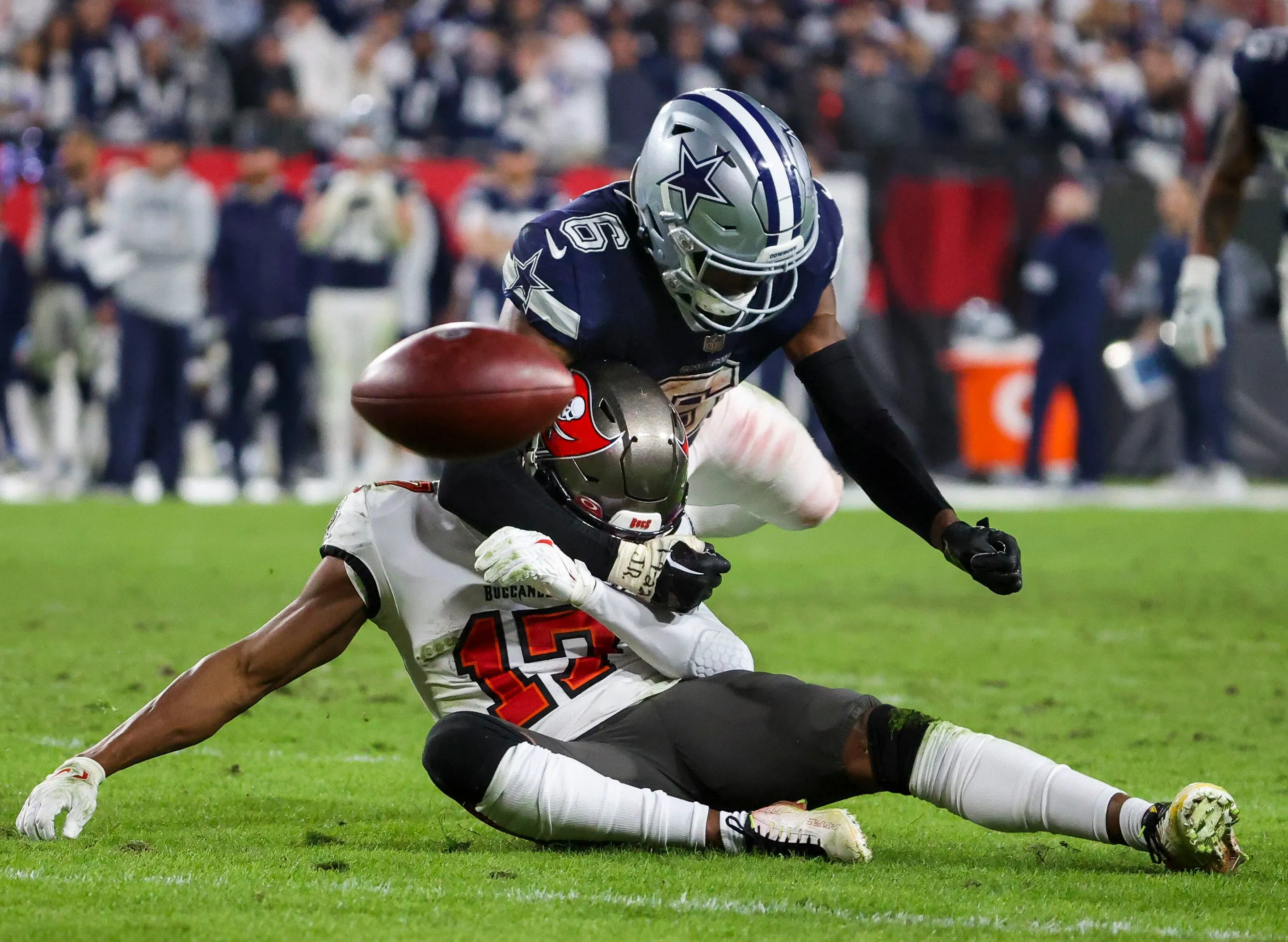Faint trade rumors have surfaced regarding Chicago Cubs second baseman Nico Hoerner. The Gold Glover has been a key to the Cubs’ rebuild after shifting to second with the signing of shortstop Dansby Swanson. There might be deals to be made with teams seeking a versatile infielder with excellent bat-to-ball skills. The Cubs are loaded with young talent ready to make their mark around MLB. But what are the pros and cons of the Cubs trading their Gold Glove infielder?

Trade Rumors Surrounding Cubs Infielder Nico Hoerner
A Buzz-Worthy Trade Chip
By the numbers, 2024 was the least effective hitting campaign of Hoerner’s first three full seasons in MLB. His slugging percentage is his biggest career weakness. His best season came in 2022 when he slugged .410 with a .737 OPS. But he did lead the Cubs in doubles (35) and stolen bases (31) last season.
Besides his extremely high bat-to-ball skills, Hoerner, 27, has become an anchor in the middle infield alongside Swanson. Granted, his 3.7 WAR wasn’t quite All-Star level. But his average WAR for the past three seasons is a respectable 4.3. The fact that he plays equally well at both second base and shortstop makes him a versatile two-way player.
Nico knocks out his second home run of the night. pic.twitter.com/DmtMNOAC3t
— Chicago Cubs (@Cubs) September 25, 2024
Some Possible Trade Contenders
Hoerner has two years remaining on a three-year contract that pays him a little under $12 million a year. The Cubs, meanwhile, appear to have plenty of incoming talent at several infield positions, including second base. The club needs, more than anything, to add more pitching depth and more slug. And there are teams with available talent that may or may not be on the trade table this fall.
A multiplayer trade with the Seattle Mariners for catcher Cal Raleigh and closer Andrés Muñoz plus some minor league talent is one possibility. Muñoz, 27, closed 22 out of 27 games for the Mariners. Raleigh is an elite defensive catcher with a .748 OPS, 34 home runs, and 100 RBI in 2024. The San Diego Padres’ late-blooming closer Robert Suarez converted 36 out of 42 save opportunities.
Less likely might be New York Yankees starting pitcher Nestor Cortes (162 strikeouts/39 walks/1.153 WHIP) or third baseman Jazz Chisholm Jr. (24 HR/73 RBI/.760 OPS). Cleveland Guardians closer Emmanuel Clase (47 out of 50 saves/0.659 WHIP) and right-handed starter Tanner Bibee (12-8/3.47 ERA/1.117 WHIP) are other remote possibilities.
Trade-Off vs. Payoff
Okay, some of those, especially that last group, is a pipe(line) dream. At $4 million per year, Clase, 27, has to be the best pound-for-pound bargain in MLB. And Bibee, 26, is likely to get a big league contract worthy of his record and his youth.
The broader problem is the Cubs have no way of knowing what Hoerner’s replacement will do. The last thing players tend to learn is how to hit at the big-league level. That’s not a good trade-off at this point in the team’s development.
Tax implications mean the front office is likely to let go of names like Patrick Wisdom, Yency Almonte, Christian Bethancourt, Julian Merryweather, and others. The Cubs are looking toward the postseason with the current core group in which Hoerner plays a crucial role. All this leads one to doubt that the Cubs will deal a known quantity like Hoerner at this point.
The Bellinger Caveat
One potential counter-argument is that a trade involving Hoerner, signaling a desire to improve the “damage” capabilities of the lineup, could convince Cody Bellinger to stay. Bellinger is still the Cubs’ best hope for a superstar. If he were to see the Cubs land another big bat this offseason, would he resolve to stay and see how it goes in 2025?
Farm (System) to Table
Apart from starting pitching, the farm system is still the Cubs’ best hope for improvement. The team’s number one prospect Matt Shaw is a versatile infielder who would fit in nicely with the likes of Isaac Paredes, Dansby Swanson, and MLB All-Rookie First Team member Michael Busch. Owen Caissie and Kevin Alcántara are play-ready in right field and Caissie (.847 OPS/19 HR/75 RBI) shows some pop at the plate.
Then there’s 20-year-old Moises Ballesteros whose “freakishly hitterish” performance in the Arizona Fall League (1.097 OPS in 17 plate appearances) continues to impress. Ballesteros’ best bet with the Cubs is to work his way into the catching role, as Michael Busch has sown up first base. That is unless the Cubs decide to deal Hoerner, at which point Busch could move to second base leaving first base to the young bomber.
Should He Stay or Should He Go?
There are options open to the Cubs this fall both large and small. As a big market club, they could potentially pull off any number of trades or free agent signings. Ownership is signaling a desire to hold off on big-ticket deals to leave room for a potential blockbuster at the 2025 deadline.
On the question of should the Cubs trade their Nico Hoerner, it might be too soon to rule one way or the other. Defensively, the club might come together easily, but the potential loss of hitting might be too much to overcome. This could potentially leave the team spinning its wheels again next season. On the other hand, a trade for the right talent in an area of need could be the difference between good and great in 2025.



